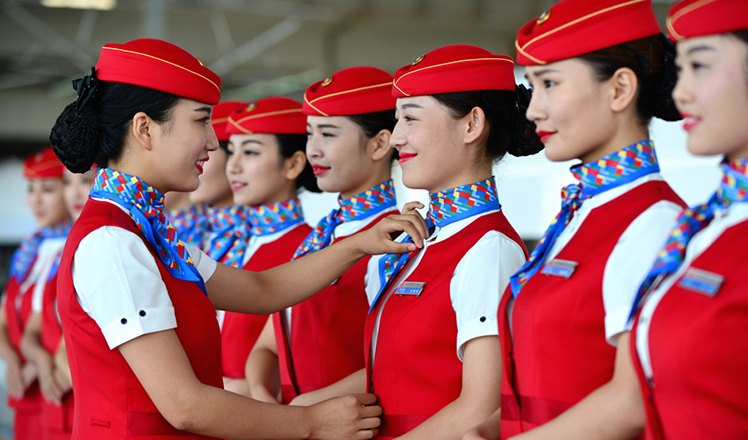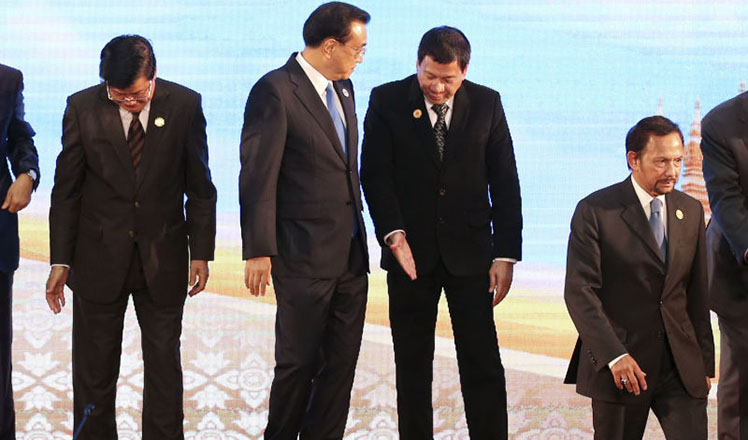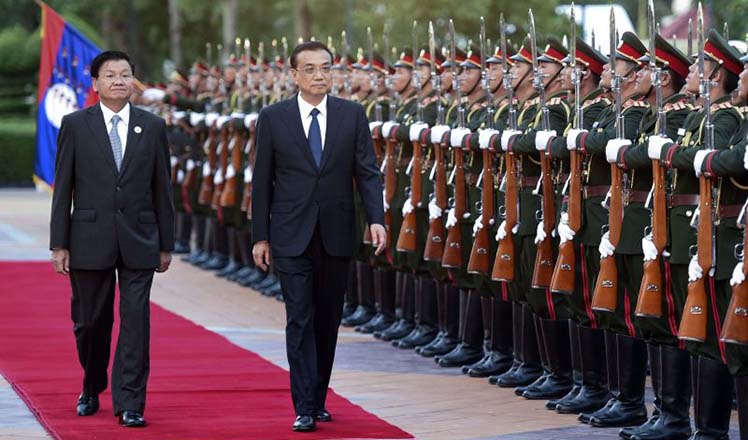National Institute of Nutrition and Health and Nestlé Research Center partner as sponsors for asymposium on nutrition and eating behavioursin Chinese children and adolescents
Updated: 2016-09-12 13:41
(chinadaily.com.cn)
|
||||||||
For the first time in China, findings from the Kids Nutrition and Health Study (KNHS) were presented at a national symposium held on September 11, 2016in Xian, China.
The KNHS is a Nestlé global initiative to evaluate nutrient adequacy, food sources of energy and nutrients, meal patterns, and related behaviours, such as child physical activity in different countries around the world. Nestlé Research Center (NRC) has partnered with the National Institute of Nutrition and Health (NINH) to further explore these topics using the China Health and Nutrition Survey as the data source.
Hosted jointly by NINH and NRC, the symposium sought to bring together leading researchers and key opinion leadersfrom public health nutrition and dietary intake research fields from all over the China. The goal was to share the KNHS findings with them and discuss the ways to improve the eating and behavioural habits of Chinese children.
During the symposium, attendees were welcomed by Dr.Dantong WANG from the Nestlé Research Center, Lausanne Switzerland, who also gave an overview of the KNHS global research project. His presentation was followed by 6 scientists from NINH who presented their work on micronutrient adequacy, energy and macronutrient intake levels, breakfast and snacking food patterns, and physical and sedentary behaviour analysis in Chinese children.
Some of the key findings presented include:
 Many Chinese children and adolescents do not get enough micronutrients:
Many Chinese children and adolescents do not get enough micronutrients:
 Over 95% of have inadequate calcium intake
Over 95% of have inadequate calcium intake
 Between 25% and 40%do not meet the zinc intake recommendation.
Between 25% and 40%do not meet the zinc intake recommendation.
 Inadequate iron intake is still an issue as almost one-thirdof teenage girls are below the recommendation.
Inadequate iron intake is still an issue as almost one-thirdof teenage girls are below the recommendation.
On the other hand, themean sodium intake is more than double the recommendations.
On average, total fat contributes 37% of the total energy intake, higher than the recommendation (i.e. 20-30%), particularly for children living in urban areas.
Most children and adolescents consume regular meals, and approximately 70% of them consume snacks.
Over 80% of children consume Grains at breakfast, only 20-25% consume Dairy products, Fruits or Vegetables at this important meal.
Fruits and fruit products are the number one snack item, consumed by more than 75% of Chinese children who snack. Many children also consume Dairy products during snacking, but this is more prevalent among children living in urban areas (35-40%) compared to rural areas (15-25%).
Researchers also pointed out the need to promote physical activity since more than half of Chinese children do not meet WHO recommendations.
About the Kids Nutrition and Health Study(KNHS)
The KNHSis a Nestlé led large-scale dietary intake and health behaviour study which focuses on 4-13 year old children. The aim of the study(currently ongoing in 7 other countries including the Australia, the Philippines, and United States)is to explore the food and nutrient intakes of children and related lifestyle and behaviour patterns as many dietary and activity habits are formed at this age. The results of the studies will help to define Nestlé’s product portfolio, consumer communication and educational programmes.
In China, a research agreement between the NRC and the NINHwas signed in 2015 to ensure collaboration betweenNestléscientists and experts from NINH in dietary intake data analysis with the goal of publishing scientific articles jointly in Chinese and English, and to present the findings in international scientific conferences.
- Joint ASEAN humanitarian drill 'improves mutual trust'
- DPRK's nuclear test condemned for cranking up tensions
- The world in photos: Sept 4 - 11
- Woman in iconic V-J Day kiss photo dies at 92
- Three women planning 'imminent' attacks arrested in France: minister
- China, Britain vow to deepen military exchanges, mutual trust

 15th anniversary of 9/11 attacks marked
15th anniversary of 9/11 attacks marked
 Yao Ming and Class of 2016 receive Hall of Fame jackets
Yao Ming and Class of 2016 receive Hall of Fame jackets
 Bullet train attendants strut new look in Xi'an
Bullet train attendants strut new look in Xi'an
 Ten photos from around China: Sept 2 - 8
Ten photos from around China: Sept 2 - 8
 Turning mud into work of art
Turning mud into work of art
 Unforgettable moments of Premier Li at ASEAN meeting
Unforgettable moments of Premier Li at ASEAN meeting
 Sights and sounds of Premier Li's visit to Laos
Sights and sounds of Premier Li's visit to Laos
 Six policy signals China sent at G20 Summit
Six policy signals China sent at G20 Summit
Most Viewed
Editor's Picks

|

|

|

|

|

|
Today's Top News
Trump outlines anti-terror plan, proposing extreme vetting for immigrants
Phelps puts spotlight on cupping
US launches airstrikes against IS targets in Libya's Sirte
Ministry slams US-Korean THAAD deployment
Two police officers shot at protest in Dallas
Abe's blame game reveals his policies failing to get results
Ending wildlife trafficking must be policy priority in Asia
Effects of supply-side reform take time to be seen
US Weekly

|

|







